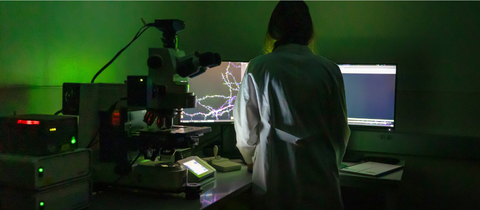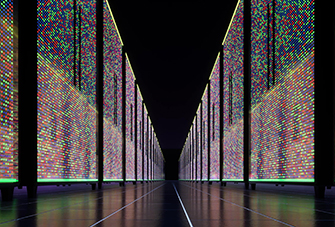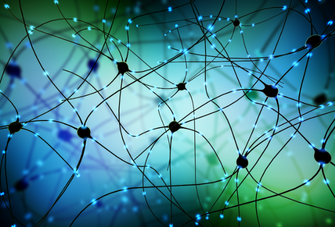Research
At the UT Southwestern Peter O’Donnell Jr. Brain Institute, basic, clinical, translational, and data science investigators are actively building collaborations to increase our understanding of the complexities of the brain and transform how brain disorders are diagnosed and treated. We envision a future in which diseases like Alzheimer’s, Parkinson’s, and schizophrenia can be successfully treated or in some cases, prevented. To realize this future, we must first understand the genes, molecules, and pathways that are altered in disease.
The O’Donnell Brain Institute provides the support and resources that our researchers need to make breakthroughs. Researchers have access to the latest technology including imaging tools that directly visualize disruption of brain function and structure as well as computing power to analyze massive amounts of data. The Institute provides several funding and mentorship programs that support researchers so that they have the training and equipment they need to be successful. Our dedicated neuroscience tower provides thoughtfully designed laboratory and meeting spaces that engender opportunities for valuable collaborations. All these resources combined set the stage for discovery at the O’Donnell Brain Institute.
Research Support
Our Facilities
The O'Donnell Brain Institute has developed an expansive and integrated research and clinical infrastructure that spans multiple locations and serves as the physical foundation for OBI’s integrated scientific and clinical mission. The cornerstone is the 9-story Peter O’Donnell Jr. Biomedical Research Building that includes approximately 120,000 square feet across seven floors of laboratory space designed for molecular, cellular, behavioral, and human neuroscience.
William P. Clements Jr. University Hospital houses over 100,000 square feet of inpatient space dedicated to neurology, neurosurgery, and interventional psychiatry. On South Campus, clinical research areas adjacent to ambulatory care centers provide specialized infrastructure to support human neuroscience studies.
Cores and Technologies
Our faculty has access to the latest technology to pursue new treatments and techniques, including two state-of-the-art TissueCyte 1000 multiphoton microscopes and NanoZoomer 2.0-HT and Zeiss Axioscan.Z1 digital scanners and additional resources below:
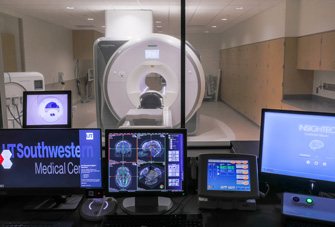
High-intensity focused ultrasound (HIFU)

Magnetoencephalography (MEG) scanner
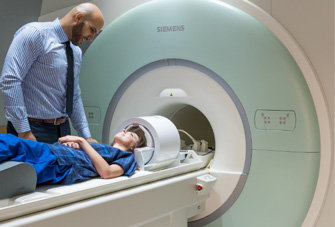
7 Tesla MR scanner
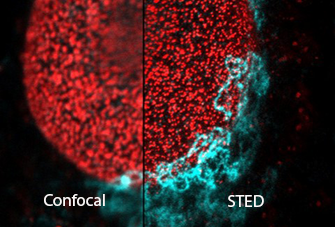
STED Imaging
Meet Some of Our Researchers
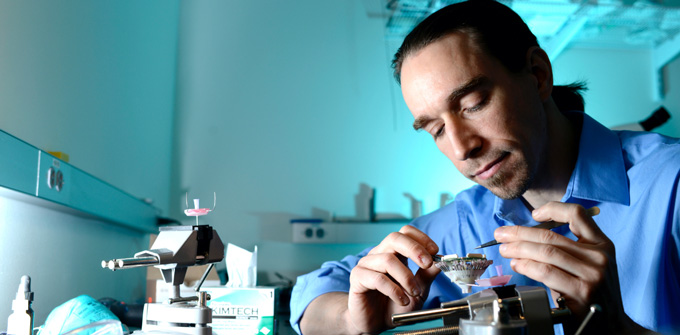
Brad Pfeiffer, Ph.D., studies how the brain forms neural representations of experience, how those representations are consolidated into long-term memory, and how those representations can be later recalled to inform behavior.
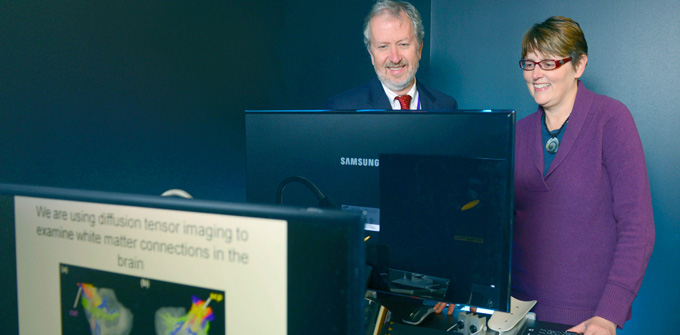
Kimberly Huber, Ph.D., focuses on understanding the cellular and molecular mechanisms of synapse and neural circuit development and plasticity, as well as the role of genes implicated in human autism and intellectual disability.
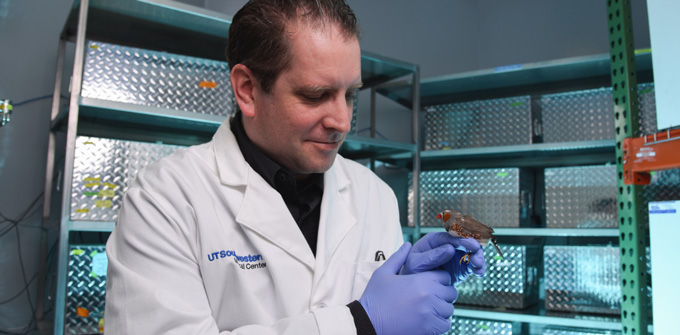
Todd Roberts, Ph.D., studies the circuit and cellular mechanisms of vocal learning. His lab’s research seeks to identify general mechanisms and principles for how brain circuits learn from experience and how disorders known to impede speech and social development in children derail the learning process.

Elan Louis, M.D., studies the genetics, epidemiology, and pathophysiology of tremor disorders and is considered the world’s leading scholar in essential tremor. His research has challenged many of the prevailing notions about ET and has substantially recreated the dialogue in the ET field.
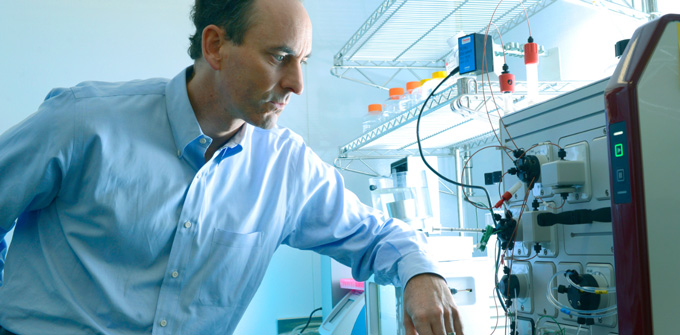
The research of Marc Diamond, M.D., is focused on neurodegenerative diseases linked to protein aggregation, and the role of prion mechanisms in the normal and abnormal physiology of protein amyloids with the goal of developing accurate, presymptomatic diagnosis and effective therapy.

Nader Pouratian, M.D., Ph.D., focuses on further developing brain mapping techniques to improve the precision and targeting of neurosurgical procedures and develop therapies for new indications. He is particularly interested in treatments for patients with movement and psychiatric diagnoses.
Departments, Divisions, and Programs
Collaborative Partners
- Advanced Imaging Research Center
- Bioinformatics
- Center for Alzheimer’s and Neurodegenerative Diseases


